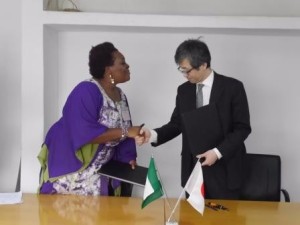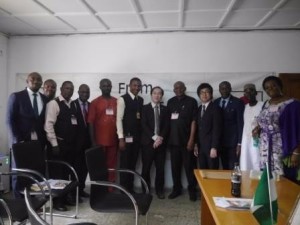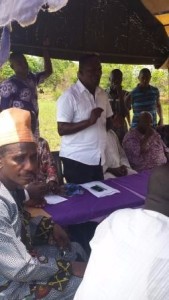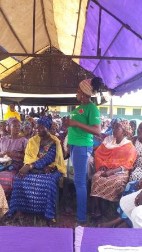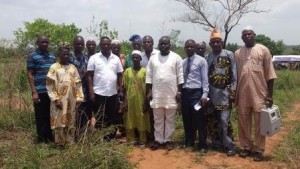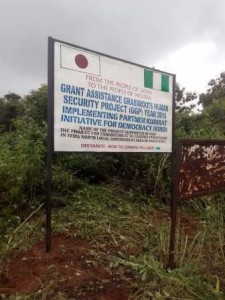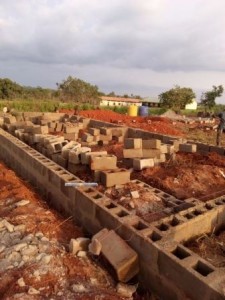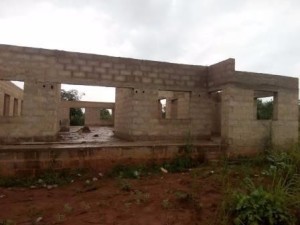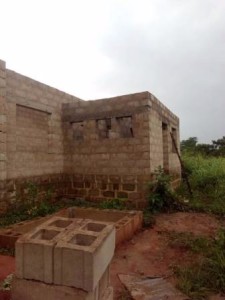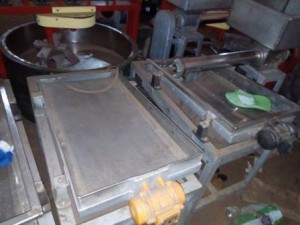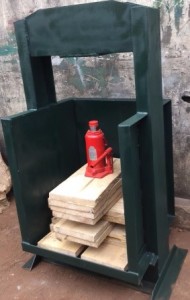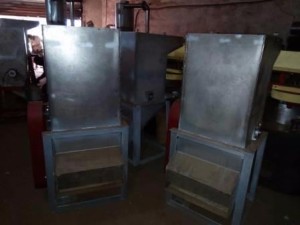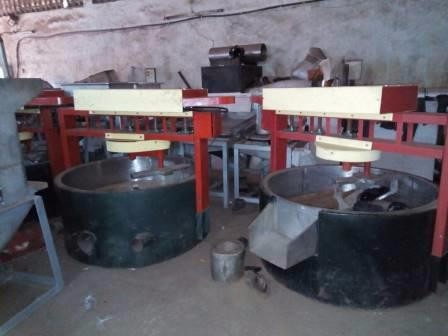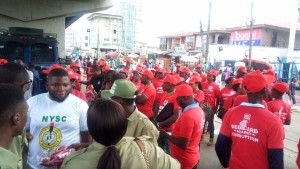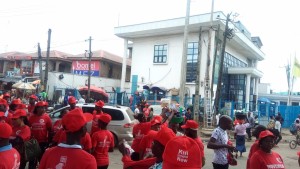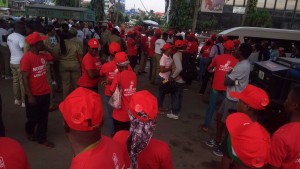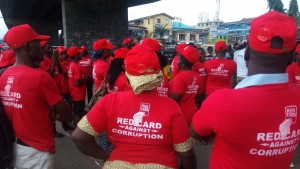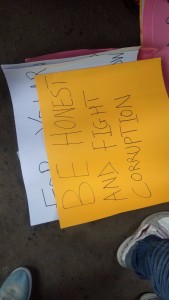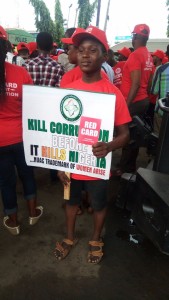Kudirat Initiative for Democracy is set to execute a project titled ENDING VIOLENCE, MARGINALIZATION, AND DISCRIMINATION AGAINST WOMEN AND PERSONS WITH DISABILITIES IN NIGERIA. Through this project, we hope to promote actions to tackle the policy deprivations, as well as social and institutional barriers faced by people with disabilities and to mitigate the social exclusions, abuses, exploitation, and violence against women in Nigeria, which is sponsored by VOICE NIGERIA.
Kudirat Initiative for Democracy (KIND) is a Not-for-Profit organization with the vision of an Africa where women, youths and disabled people can fully participate in the continent’s social, economic and political development.
This project seeks to promote actions to tackle the policy deprivations as well as social and institutional barriers faced by PWDs and to mitigate the social exclusions, abuses, exploitation, and violence against women in Nigeria. Specifically, it seeks to promote a rights-based approach to tackling disability issues in Nigeria; influence policymakers to extend social protection to PWDs; strengthen the capacity of stakeholders (NGOs) to engage in lobby and advocacy for increased social inclusion and political participation of PWDs and women who are often marginalized and discriminated against. The project will be implemented in two out of the six geopolitical zones of the country namely; Northcentral (FCT) and Southwest (Lagos State) for a period of two years. Methodologically, the project will employ the social model of disability to strengthen the capacities of DPOs and supporting NGOs to enable them more effectively than ever before discharge their lobby and advocacy functions to ensure more social inclusion and improved access to disability services by the PWDs. In the same vein, the project places emphasis on activities that will amplify the voice of marginalized women and support NGOs to tackle the issues of restricted access to productive resources as well as sexual abuses, exploitation, and violence. The project is targeted at people living with disability and women facing exploitation, sexual abuses and violence and restricted access to finance. It will support Disabled People’s Organizations (DPOs), representatives of PWDs, NGOs working to promote women political participation, women political aspirants and women farmers’ groups facing restricted access to finance. In achieving its objectives it will partner with stakeholders in public and private sectors including government officials, community and opinion leaders, formal financial institutions and the mass media.
This project is targeted at women and persons with disabilities. The latter group constitutes about 11% of the population and constitutes one of the poorest, socially excluded and marginalized groups in Nigeria. Women are subjected to sexual and physical abuses and violence and face discrimination and marginalization in terms of access to productive resources (land, finance) and participation in decision making. Smallholder agriculture which is the main source of livelihood for women is characterized by unequal access to key resources. Access to land is severely curtailed by the way it is inherited, owned and passed on by men to their male descendants in most patrilineal ethnic groups, especially in southern Nigeria. Although women represent between 60 and 79 percent of Nigeria’s rural labour force, men are five times more likely to own land than women. There are regional differences: women in the South are more likely to own and access land than women in the North. In general, land ownership is very low among women, a factor that limits their ability to exploit a land-based livelihood strategy. This affects their ability to access finance, for example, and often delays investment decisions or reduces the earning potential of agriculture. Moreover, women’s access to formal finance is highly restricted. Women are more likely to rely on family and friends for finance, partly because they lack collateral and also because they are more likely than men to be deterred from applying for formal loans by the complexity of the application process. Evidence suggests that the variation in opportunity between men and women in terms of access to finance is more prominent in urban areas and in respect of marketing activities compared to farming activities in rural areas (Olomola, 2013). This project is designed to tackle the discrimination against women in terms of access to these resources from the demand and supply sides through strengthening the capacity of the formal financial institutions on the one hand to enable them have better understanding of the need for agribusiness financing by women and how to design innovative approaches to extend finance for their operations; while on the other hand enhancing the capacity of the women to have better understanding of financial management and application of loans. This sort of holistic approach is a desirable change of strategic in promoting better access to finance by women for agribusiness purposes.
The broad goal of this project is to promote actions to tackle the policy deprivations as well as social and institutional barriers faced by PWDs and to mitigate the social exclusions, abuses, and violence against women in Nigeria. The specific objectives are to
1) Influence policymakers to extend social protection to PWDs through inclusionary education (IE) and social assistance in the form of conditional cash transfer (CCT).
2) Influence relevant financial institution and strengthen women groups for better access to agribusiness finance for women in agriculture.
3) Influence relevant organizations and strengthen the capacity of women political aspirants to advance women’s participation in politics.
4) Influence policy and strengthen relevant organization to migrate abuse and violence against PWDs.
5) Influence policy actions to promote zero-tolerance attitude to abuse and violence against women and girls (VAWG) with emphasis on rape and luring of young girls into prostitution.
The project will be in full support of the following groups:
(i) Women political aspirants and NGOs working to promote women political participation
(ii) Women Agribusiness Groups working to promote access to finance (amplify their voice against discrimination and marginalization)
(iii) Sexually abused women. The scope of sexual abuse in this project is narrowed down to rape and under-aged girls lured into prostitution.
(iv) Women who are vulnerable to violence (domestic violence or otherwise) Violence refers to the intentional use of force or power, threatened or actual, against oneself, another person, or against a group or community, that either result in or has a high likelihood of resulting in injury, death, psychological harm (Oxfam, 2012) Maldevelopment or deprivation.
(v) Disabled People’s Organizations (DPOs)(strengthen their lobby and advocacy capacities).
(vi) Representatives of PWDs.
This project is important for Nigeria because of the severe social exclusion faced by persons with disabilities (PWDs) which has subjected them to chronic poverty over the years. It is particularly important because actions to reduce social exclusion are confounded by the absence of nationally operational disability discrimination legislation and lack of social protection for PWDs. The concern of policy makers has always been expressed through policies which more often than not have not been effectively implemented. About four decades ago, the national policy on education provided for the integration of children with disabilities into the mainstream of public schools in line with the UN Universal Declaration of Human Rights which guarantees a child’s universal rights to education. Following the adoption and ratification of the African Charter and Human Rights, Nigeria adapted key international protocols regarding the welfare of (PWDs) into Nigerian law through the enactment of the African Charter on Human and People’s Rights (Ratification and Enforcement) Act No. 2 of 1983 (Chapter 10 LFRN, 1990). In response to global initiatives and further to Nigeria’s ratification of other conventions including the UN Standard Rules on the Equalization of Opportunities for PWDs 1993, and Declaration of the Rights of the Disabled, 1995; the federal government enacted the Nigerian with Disability Decree of 1993 to be the first legislation aimed at catering for the needs PWDs. The decree soon fizzled out in the aftermath of the inception of democratic governance in 1999. Although sections of the constitution address issues concerning rights of the Nigerian child including prohibition of discrimination; such prohibition was not specifically based on disability.
Following the adoption of the Convention on the Rights of the Child in 1989 and enactment of the Child’s Rights Act of 2003, Nigeria demonstrated further concern about the care for children with disabilities in its 2004 National Policy on Education. The policy emphasized inclusive education opportunities and made it an integral part of the Universal Basic Education (UBE) of 2004. The policy provided for free access to education at all levels for children with special needs through inclusive integration of special class and units into the regular public classes under the UBE programme. However, evidence suggests that it has been difficult to achieve the desired level of inclusion of PWDs due to lack of funds, shortage of specialists in special needs education and lack of data on potential students with disabilities. A move from policy approach to legislative action started in 2009 and culminated in legislative work on Nigeria’s Disability Bill. The Bill seeks to ensure and promote the full realization of all human rights and fundamental freedom of all PWDs without discrimination of any sort in line with the UN Convention on the Rights of Persons with Disability (CRPD). To date, however, work on the Bill has not been finalized. Tagged the Discrimination Against Persons with Disability Bill, it failed to get Presidential assent twice after its passage in the 6th and 7th (2011 and 2015) National Assembly. Early in the life of the 8th Assembly (July 13, 2016), it was passed by the Senate following its passage by the House of Representatives. As at February 2017, it is yet to receive Presidential assent. At the subnational level, legislation to protect the rights of PWDs has also been a matter of concern. By June 2011, Lagos State enacted the Special People Law, making it the very first state in the country to demonstrate adherence to the CRPD and other normative standards through legislation. To date (2017) there are altogether only four (Bauchi, Ekiti, Plateau, and Lagos) out of the 36 states in Nigeria that have passed the law to protect the rights and dignity of PWDs in the country. Thus, the widespread policy recognition of disability issues as issues to be addressed through charity and welfare approaches continue unabated. This systematic misperception which has tended to widen the supply-demand gap of disability services; and the proposed project should play a significant role in changing such misperception and contribute to the entrenchment of a rights-based approach to tackling the issue of marginalization and discrimination against PWDs and women in Nigeria. Moreover, the discrimination and violence against women (VAW) in Nigeria is spreading widely across the country. Currently, only 12 of the 360 members of the House of Representatives are women while only 3 of the 109 members of Senate are women. The discrimination transcends political exclusion. Women are also discriminated against in terms of access to finance and land and are faced with physical violence and sexual abuse in and out of their homes. If Nigeria is to fully realize its development potentials there is need to reverse this trend so that women can contribute their own quota. This project is particularly timely within the context of the concerted efforts being made in the country to douse the wave of insurgency, kidnapping and other deviant behaviors. It will contribute to the efforts aimed at stemming the tide of violent and criminal tendencies among the youths on account of the harsh economic condition in the country. Currently, the economy is in recession with inflation rising from 9.6% in December 2015 to 18.55% in December 2016 and 18.72% in January 2017. The youth unemployment rate rose from 14.46% in the last quarter of 2015 to 16.39% in the first quarter of 2016. According to the National Bureau of Statistics (NBS) women population in the labor force continued to be more affected by the country’s unemployment crisis compared to their male counterparts. This situation is apt to escalate the poverty rate among the PWDs and women who already are facing the pangs of marginalization and discrimination. Thus, this project that seeks to promote women’s access to productive resources (finance and land) and the inclusion of PWDs in social protection programmes of the government at this juncture is highly desirable.
The problem of discrimination against women in terms of access to land and finance, for example, is borne out of research. evidence-based on research suggests that Land access is severely curtailed by the way land is inherited, owned and passed on by men to their male descendants in most patrilineal ethnic groups, especially in Southern Nigeria. Data from the NBS Core Welfare Indicators survey of 2006 show the variations in ownership pattern across the country and the gender disparities (Table 2).
Table 2: Distribution of Land Ownership by Gender (%)
| Sector | Land Ownership | |
| Female | Male | |
| Total | 7.2 | 38.1 |
| Rural | 8.5 | 46.1 |
| Rural poor | 10.1 | 49.5 |
| Urban | 4.5 | 22.4 |
| Urban poor | 5.9 | 28 |
| Zone | ||
| North-West | 4.7 | 50.1 |
| North-East | 4 | 52.2 |
| North-Central | 7.9 | 41.2 |
| South-West | 5.9 | 22.5 |
| South-East | 10.6 | 38.1 |
| South-South | 10.9 | 28.3 |
Source: NBS Core Welfare Indicator Survey, 2006
There are differences in land ownership across the geopolitical zones. Women in the South are more likely to own and access land than women in the North. The North-East displays the largest disparity: here, only 4% of women own land, a rate 13 times lower than that of men. Land ownership in urban areas shows a similar pattern; men are five times more likely to own land than women. Evidence also suggests that the variation in opportunity between men and women in terms of access to finance is more prominent in urban areas and in respect of marketing activities compared to farming activities in rural areas. As shown in Table 3, women have better access to finance than men in the rural areas whereas, in the urban areas, men’s access to formal finance is more than double that of women. Both in the rural and urban areas, men’s access to grants for farming and trading activities is much higher than that of women.
Table 3: Access to Various Sources of Credit in Nigeria
| Rural (Agriculture) | (Urban) Trade | |||
| Male | Female | Male | Female | |
| All Loan Facilities | 38.3 | 38.5 | 54.1 | 45.9 |
| Bank Loan | 37.6 | 33.8 | 79.8 | 20.2 |
| Microcredit | 42.6 | 44.4 | 71.2 | 28.6 |
| Grants | 53.3 | 25.8 | 84.2 | 15.8 |
| Esusu | 37.0 | 38.1 | 43.6 | 56.4 |
| Cooperatives | 40.5 | 42.1 | 64.4 | 35.6 |
Source: NBS: Core Welfare Indicator Questionnaire Survey for Nigeria, 2006
Moreover, according to the World Bank report on the “Investment Climate in Nigeria” (World Bank, 2009) that capital rather than productivity narrows the range of activities in which women engage. The report shows that a majority of women (76%) rely mostly on internal funds and retained earnings, and that only about 1% obtain capital from the formal financial sector. The report corroborates work which suggests that formal financial institutions, especially banks, have not supported women entrepreneurs as much as they could have (Halkias et al., 2011). The project will support the reduction of marginalization of the target groups by (i) influencing policy to free the PWDs (physically challenged children) from the shackle of exclusion from regular schools. This will achieved through advocacy campaigns and the provision of training to teachers on inclusionary education; (ii) developing the capacity of Disabled People’s Organizations (DPOs) (through training) to amplify their voices in demanding for disability services on the basis of rights; (iii) strengthening the capacity of Women NGOs and women political aspirants (through training) to have voice to claim their rights to aspire to political offices and to stand for election rather than being marginalized to cheer leaders in the political system and (iv) reducing marginalization and discrimination against women in accessing agribusiness finance by training women farming groups to better manage finance and lending institutions serving them to better design and manage lending programmes for women.











